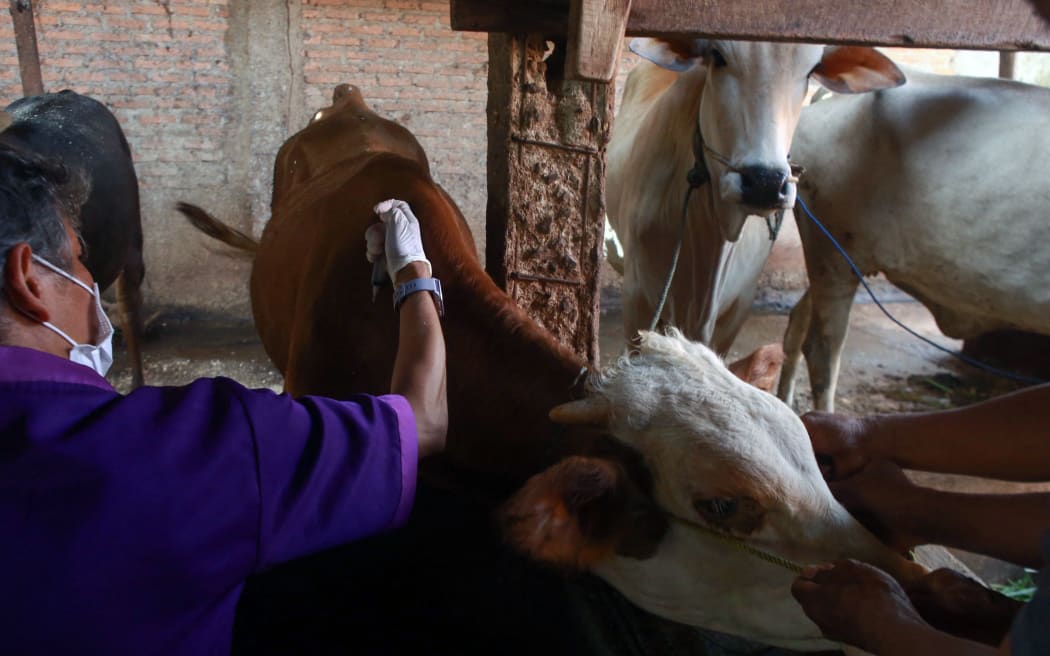New Zealand’s economy could take a severe hit in the event of an outbreak of foot-and-mouth disease in the country, an economist says.

A vet vaccinates cattle to protect them from foot-and-mouth in Bandar Lampung, Lampung province in Indonesia where thousands of cattle have already had to be killed.
Photo: AFP
It comes after the livestock disease was discovered in Indonesia in May, and last week cases were confirmed in the popular holiday hotspot of Bali.
Read Country Life’s recent report about a vet based in Bali who is warning of the danger
Treasury data from 2018, shows a six-month outbreak of foot-and-mouth in the North Island could result in lost export earnings of $15 billion, and nominal gross domestic product to be $24 billion lower over the following five years.
Westpac senior agricultural economist Nathan Penny said the risk of an outbreak was low, but there would be ripple effects throughout the economy should it eventuate.
“The broader impacts – the macroeconomic impacts if you like – would see the economy go into recession and we would also see the New Zealand dollar fall so the impacts on urban areas would be keenly felt as well.
“The standard approach to foot-and-mouth is to cull stock in many cases so that obviously would have a drastic impact on our ability to export those stocks, that would be removed,” Penny said.
He said regional New Zealand, which is dominated by the rural sector, would be particularly hard hit.
“When we think about the provinces, they’re heavily exposed to agriculture and their economies are less diverse than the likes of Auckland, Wellington or Christchurch … those economies would rebound faster than the provincial centres.
“But that said, we do have some experience in dealing with these sorts of things. We had recent experience with mycoplasma bovis.
“We have got some of the best biosecurity systems in the world and that could mean that there would be the possibility that New Zealand and the rural regions could bounce back from this pretty quickly,” Penny said.



